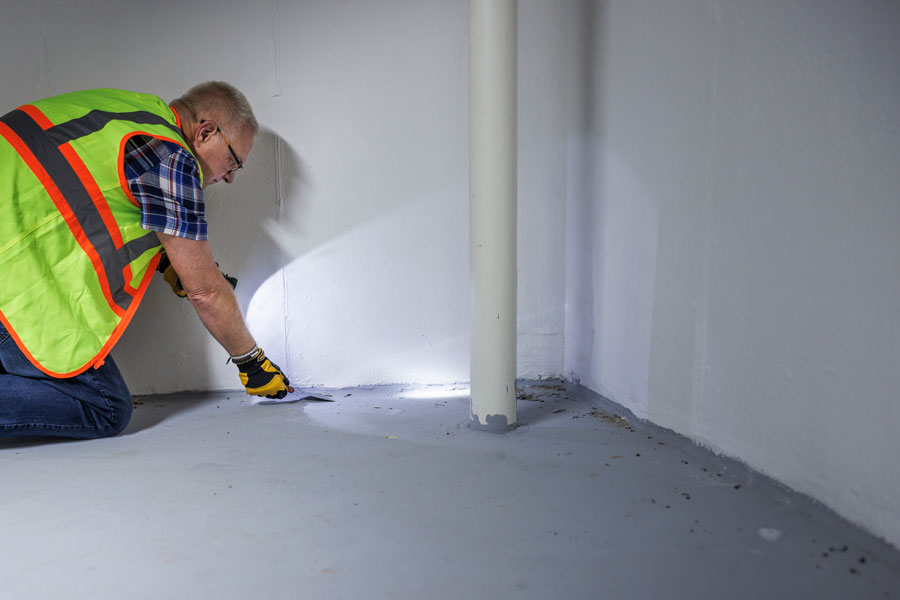Basements can be an area in your home that can provide a lot of extra storage space, but not all homeowners realize that it can also be a magnet for all types of bugs. Here, we’ll discuss the most common bugs found in basements and how our bug control in Uvalde services can manage them. Although some basement-dwelling bugs may not cause much harm, some can become a nuisance, and others can be dangerous. Knowing which bugs, you’re likely to find in your basement can help you determine how to prevent or eliminate them.
Why Do Basements Attract Bugs?
Basements, like other parts of a home, provide safety and shelter from the elements, and they’re the perfect breeding ground for many species of bugs. Because basements are often dark, poorly ventilated, and typically without much foot traffic, they provide the ideal environment for bugs to breed, feed and hide. And, because many homes have a damp basement, the humidity and moisture levels are often high enough to attract certain bugs looking for a damp place to call home.
Types of Basement Bugs
Cockroaches
Cockroaches are one of the most common bugs found in basements. They’re attracted to food, water, and shelter and are particularly fond of damp and dark places like basements. Cockroaches often hide in cracks and crevices, and they’re drawn to moisture, so they’ll often make their way into plumbing, where they can find ample access to water. Cockroaches can carry diseases and emit an offensive smell, making them a major nuisance in the home.
Silverfish
Silverfish are another common bug found in basements. They’re nocturnal, slender insects typically gray or silver in color. They’ll typically hide during the day and come out at night to scavenge for food, including any starch, like the glue found on paper or the bindings on books. They’re drawn to damp environments and feed on anything that contains starches, including books, insulation, and wallpaper.
Centipedes
Centipedes are another type of bug that love basements. These long, yellow-ish bugs have an even number of legs and can range from small to large. They prefer dark, damp places, commonly found in basements. Centipedes are predatory, so they feed on other insects, making them very useful in controlling unwanted pests.
Beetles
Beetles are among the most common bugs found in basements. Various types of beetles, like carpet beetles, powder bags, flour beetles, and grain beetles, will often take up residence near sources of food, making basements their ideal breeding ground. Beetles will often feed on animal hair, as well as dried food and grains.
Moths
Moths also make basements their home. Night-time pests feed on items containing starches and proteins, such as wool clothing, carpets, and household dust. Moths are attracted to light and damp places and reproduce quickly if the conditions are right.
Preventing Bugs in Your Basement
There are a few things you can do to keep bugs from making a home in your basement, such as:
- Ventilate the area: Make sure there is ample airflow and ventilation in the basement so that bugs won’t be attracted to the damp, humid environment.
- Eliminate sources of food: All sources of food should be sealed tightly and stored in airtight containers. Regularly clean the basement of any crumbs or food particles.
- Seal any cracks or crevices: Caulk any areas where bugs might be able to enter, such as around the windows and doors and in the corners of the walls and floor.
- Remove any standing water: Make sure to keep drains clear of debris and fix any leaks that are present.
- Use traps: Insect traps can be used to attract and kill bugs, and they can help you keep an eye on pest activity.
- Use pesticides: Depending on the severity of the infestation, you may need to use pesticides to get rid of bugs in your basement.
Getting Rid of Basement Bugs
Once you’ve identified the type of bugs in your basement, you can take steps to eliminate them. Here are a few tips for removing bugs from your basement:
- Vacuum regularly: Vacuuming regularly can help remove bugs and their eggs, as well as any other debris that might attract bugs. Be sure to dispose of the vacuum bag in an outside container right away, as vacuum bags can provide a home to bugs.
- Use natural repellents: Natural repellents like black pepper, cayenne pepper, garlic, and citrus oil can help get rid of, or at least reduce, the number of bugs in your basement.
- Use chemical insecticides: Chemical insecticides are the most effective way to get rid of bugs, but you should always use them carefully and in accordance with the label instructions.
- Fix plumbing issues: If you’ve identified plumbing issues as the cause of your bug infestation, make sure to fix them as soon as possible.
- Professional help: If all else fails, you can always hire a pest control company to come in and take care of the problem.
Bug Control in Uvalde
Basements can be a great addition to any home, but they can also be a magnet for bugs. By taking the necessary steps to prevent bugs, you can ensure your basement is a haven, not a home for pests. Contact us today for an inspection from our bug exterminator in Uvalde TX.

